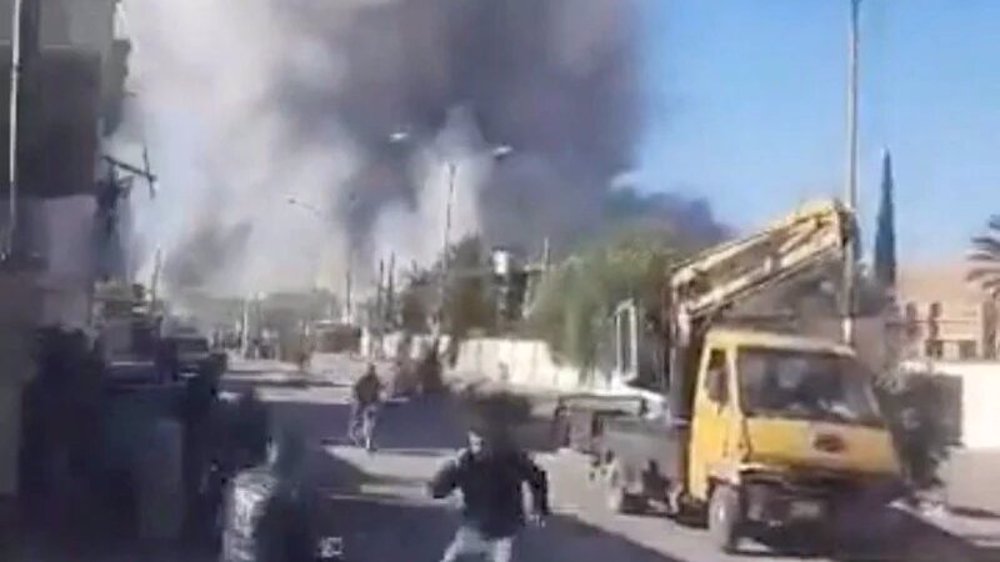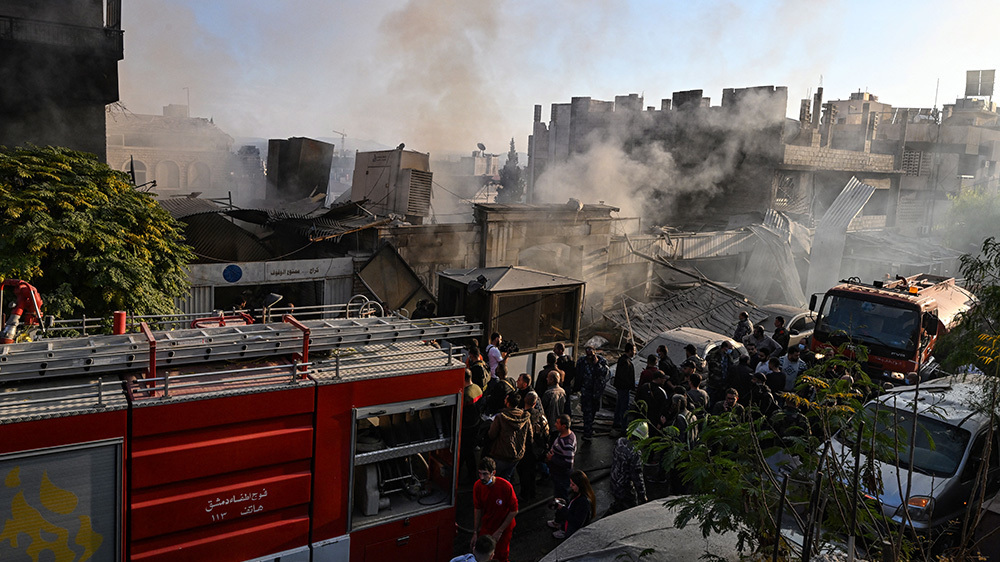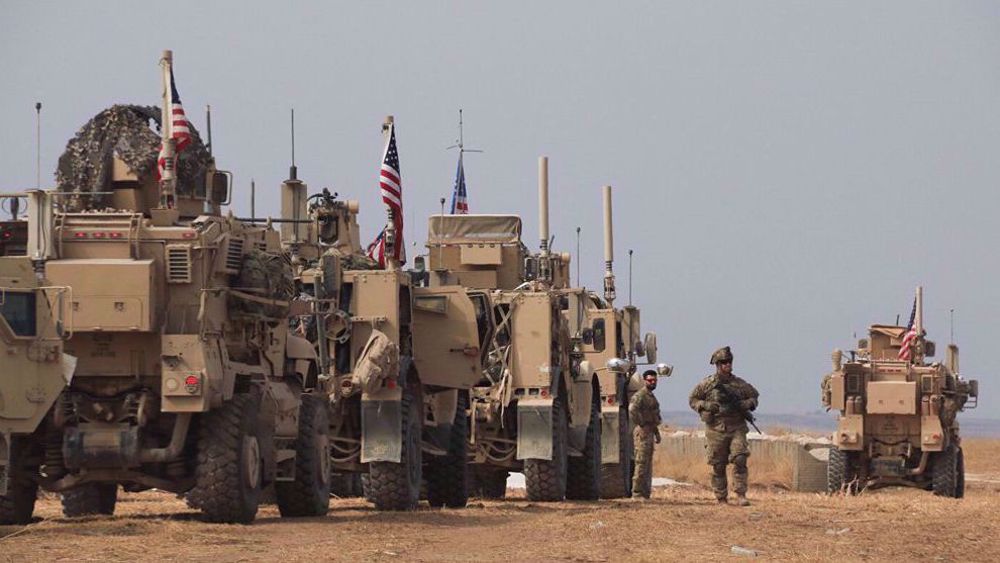Syria's UN envoy says anti-Damascus sanctions amount to 'economic terrorism'
Syria’s mission to the United Nations has vehemently condemned the economic sanctions targeting the country, saying they blight the lives of ordinary Syrians.
“The unilateral, coercive measures imposed on the Syrian people represent an economic terrorism that are largely affecting the lives of the Syrians and hindering the delivery of their daily basic needs,” the official Syrian Arab News Agency (SANA) reported, citing the country’s UN Ambassador Bashar al-Ja’afari as saying on Wednesday.
Ja’afari, who was addressing a UN Security Council session focusing on the situation in the country, said that since foreign-backed militancy broke out in 2011, Damascus “had spared no efforts to fulfill its duty in meeting the humanitarian requirements of the Syrians, who have suffered from this war.”
The Syrian government, the envoy said, was prepared to boost its cooperation with the UN and its member states to both improve the humanitarian situation and pave the way for the return of those who had fled war.
The United States and its Western and regional supporters stand accused of supporting the foreign-backed war that has killed hundreds of thousands in the country, but has now been mostly contained thanks to Damascus and its allies’ counter-terrorism efforts.
Washington has, meanwhile, been imposing sanctions on hundreds of companies and individuals, whom it accuses of involvement in developing chemical munitions. Damascus surrendered its stockpile of chemical weapons in a process monitored by the UN and the Organization for the Prohibition of Chemical Weapons (OPCW) in 2013, and has repeatedly asserted that it has never deployed such weapons.
The European Union has also slapped Syria with an oil embargo, placed restrictions on certain investments in the country, frozen the assets of the Syrian Central Bank across the bloc, and imposed bans on dozens of companies linked to the government of Syrian President Bashar al-Assad. The EU voted last May in favor of extending the bans until June 1, 2019.
‘Foreign forces back terrorism’
Elsewhere in his remarks, Ja’afari expressed satisfaction with the “positive” meetings and “frank” dialog with the UN Under-Secretary General for Humanitarian Affairs Mark Lowcock and other officials.
He, however, asserted that the Syrian people’s suffering would not cease “if the reasons behind this suffering are not treated, mainly the presence of terrorism.”
The envoy called for ending the illegitimate presence of the US, French, Turkish, and British troops on the Syrian territory, saying those are “supporting terrorism and obstructing the humanitarian work,” SANA said.
Back in April, officials from a coalition of Arab and Kurdish militants operating in northeastern Syria said the US, Britain and France were setting up new outposts in northeastern Syria, despite a lack of permission from Damascus to have military presence in sovereign Syrian territory.
“The United States and France have increased the number of their military in Manbij,” said Helil Bozi, the commander of the “Military Council of Manbij” of the so-called Syrian Democratic Forces (SDF). He said British forces, too, had been deployed to the same territories.
Turkey has also a military presence in northern Syria and has already launched two cross-border operations there, namely “Euphrates Shield” in August 2016 and “Olive Branch” in January 2018 with the declared aim of eradicating the presence of Kurdish militants and Daesh terrorists near Turkey’s borders.
‘Foreign intelligence informing White Helmets’
Separately, he said the White Helmets, a Western-backed so-called aid group, had “made many fabrications by instructions from Western intelligence” about alleged use of chemical substances in Syria for some permanent members of the UNSC to provide pretext for launching acts of aggression against the Arab country.
The US, Britain, and France have, in the past, used allegations of deployments of chemical agents to launch attacks against the Syrian military’s defenses and other targets with the purported goal of paralyzing the Syrian government’s capability to produce chemicals.
US President Donald Trump ordered a missile strike against Shayrat Airbase in Syria’s Homs Province on April 7, 2017. He claimed back then that the airfield had been the origin of a suspected sarin gas attack on the town of Khan Shaykhun in the northwestern Syrian province of Idlib on April 4, 2017.
On April 14, 2018, the US, UK, and France also launched more than 100 missiles against what they said were Syrian chemical weapons facilities in response to an alleged chemical weapons attack in a Damascus suburb a week earlier.
VIDEO | 85% of Yemeni displaced people face daily hunger crisis
US House passes bill targeting charities and pro-Palestine groups
VIDEO | Supporting Gaza genocide
Hezbollah attacks Israeli forces after Lebanese homes blown up
World leaders, states hail ICC arrest warrants for Netanyahu, Gallant
MP: US accountable for possible Israeli 'foolishness' to attack Iraq
VIDEO | Israeli policies strangle Palestinian agriculture, economy
Iran's president offers condolences to Pakistan over terrorist attack














 This makes it easy to access the Press TV website
This makes it easy to access the Press TV website